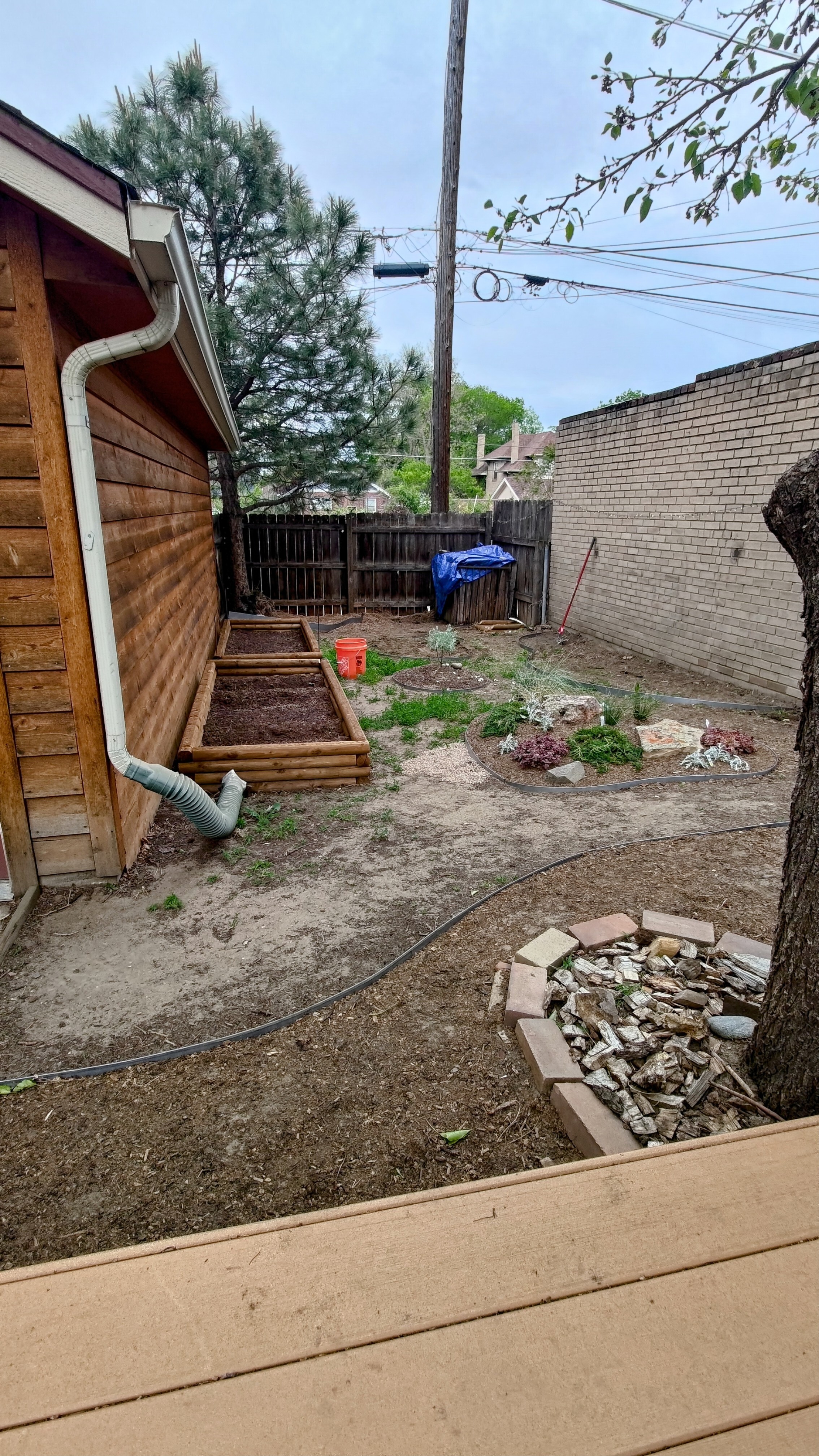this post was submitted on 20 May 2024
226 points (99.1% liked)
Gardening
5222 readers
272 users here now
Your Ultimate Gardening Guide.
Rules
- Be respectful and inclusive.
- No harassment, hate speech, or trolling.
- Engage in constructive discussions.
- Share relevant content.
- Follow guidelines and moderators' instructions.
- Use appropriate language and tone.
- Report violations.
- Foster a continuous learning environment.
founded 2 years ago
MODERATORS
you are viewing a single comment's thread
view the rest of the comments
view the rest of the comments

I also love the connection between the gutter into the flower/herb bed too! Although maybe a "better looking" solution could be something to look into in the future. Great work!
I have since been told that may add hydrocarbons and micro plastics from the roof into my veggies, so I'm looking into another solution 😅
Look into a sub irrigated planter. It's just a planter with a water reservoir inside it that let's the plants have consistent moisture. They only have to be refilled about once a week in the peak of summer (weeks at a time of 100+ F with no rain) and as little as once a month in more mild weather.
This site has a ton of good information about them: https://albopepper.com/sips.php
Here's how I built mine: Build the planter to be about 24 inches tall and line it with a pond liner. Put a few pieces of corrugated drain pipe in the bottom. You are better off with these having a little bit of space between them than being packed too tightly. You then need to add an over flow drain at the top level of the pipes, and at the opposite corner add a pvc fill tube. The site I linked above explains this better, including some videos if that's your preferred format. Cover the pipe with peat moss and pack the moss down under and between the pipes. Fill the rest of the planter with potting mix mixed with more peat moss and vermiculite/perlite. Do not add organics like compost or top soil. The mix should drain extremely well and feel light.
The guy mentions that the planter is not good for perennials due to the risk of freezing, but I have had very good success with native perennials in my planter. I have a native hibiscus as the centerpiece and it is going great.
The whole landscape process is a learning experience. Don't expect to have your dream yard in one season, just aim to improve it a bit each year. Good luck!